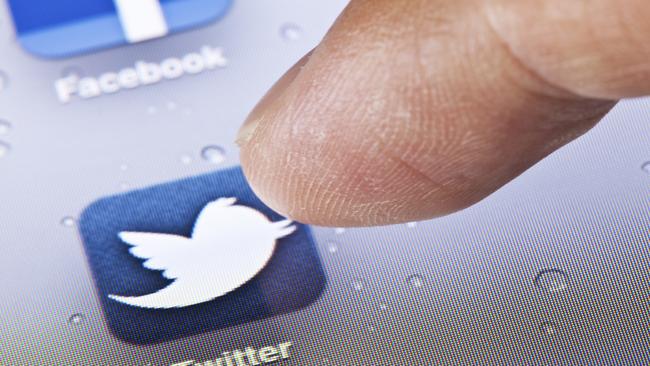How to get a job by spring cleaning your social media accounts
HERE’S why your social media posts could be holding you back from getting that dream job – but it’s not the way you think.

Careers
Don't miss out on the headlines from Careers. Followed categories will be added to My News.
IT’S 2014. You would think by now we would have worked out not to post drunken public selfies or b***h about our bosses on Twitter, but you’d be wrong.
With your entire social media history often no more than a Google search away, potential job seekers are still being knocked back for online indiscretions — often without even knowing it.
Studies have shown that 91 per cent of recruiters use social media to screen prospective employees, and one in three employers have rejected candidates based on something they discovered online.
Despite this, more than half of adults say they don’t actively think about the consequences of their online activities, and 69 per cent don’t understand how to use their social media privacy settings.
One local start-up is attempting to cash in on the social reputation niche, offering job seekers — and employers — a ‘social health check’ by scanning their Facebook, LinkedIn, Twitter and Google+ accounts.
The service assesses each online profile’s strengths, weaknesses and areas of concern and then dishes up a report with a score out of 1000, benchmarking the user against their peers.
Companies can also pay for reports to ensure employees are representing the business appropriately online.
For the record, it costs $89.95 — common sense not included.
Social Check founder David Griffiths says it helps to think about your online personas the same way you think about your personal interactions. “You have a different conversation with your grandma than with your parent, boyfriend or sister,” he said.

“There has to be an appropriate conversation that’s had with the relevant audience on the relevant platform. Having a Facebook-style photograph on your LinkedIn profile is like talking about the details of your Friday night with your grandma.”
So, what are the most common social media mistakes?
POSTING TOO OFTEN
It may be tempting to post a sneaky status update in between work emails, but potential employers might see regular posting during work hours as a problem.
“Should you be working rather than tweeting or posting? If more than 20 per cent of your posts are during the working day then that could be a problem,” Mr Griffiths says.
BEING NEGATIVE
Even if your posting isn’t work-related, try watch your tone. Your friends might be used to your snarkiness, but keep in mind how it might come across to an outsider.
“Tone is very important. People who are always b****ing about the world or focusing on the negative might find themselves passed over. Employers want to recruit and work with people who are positive.”
POOR SPELLING
Another one that might seem obvious, but poor spelling is far too common online. With the internet’s de facto dictionary, Google, just a click away, there’s no excuse for getting it wrong anymore.
“You can get away with poor spelling on say Twitter with abbreviations, but probably not on LinkedIn,” Mr Griffiths says. “Some people may perceive it as a lack of intelligence or education.”

PROFANITY
Swearing can be a tricky one. It can often depend on your industry whether or not profanity is considered acceptable or a reputational risk.
“We don’t say don’t swear, because it’s fairly integrated into our culture and society, but what we do say is consider how that may be perceived — in some industries it may be considered unprofessional but less so in others.”
ONLINE ABSENCE
But the big one, according to Mr Griffiths, is simply being absent from social media altogether. While some might crave online anonymity, he believes we’ve reached a tipping point where that’s no longer an option.
“One senior exec once said to me, ‘You won’t find anything about me online.’ But people want leaders who adapt to change, who build relationships,” he said.
“We’re at that tipping point now where if you don’t have an online presence, that in itself can be a negative. If you look at [Telstra chief executive] David Thodey’s LinkedIn profile, he’s an influencer on LinkedIn, he does a lot of their PR, thought leadership pieces, and that comes through very strongly.
“You contrast that with Optus chief executive Paul O’Sullivan — he’s got a profile, his photo, and two connections. I think culturally you can see that cascading down.”
Originally published as How to get a job by spring cleaning your social media accounts



